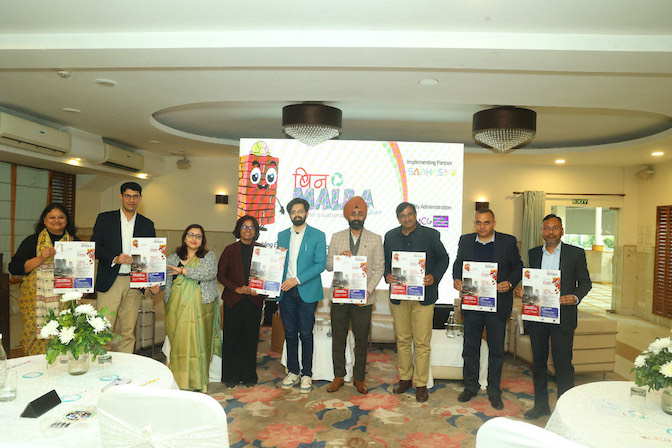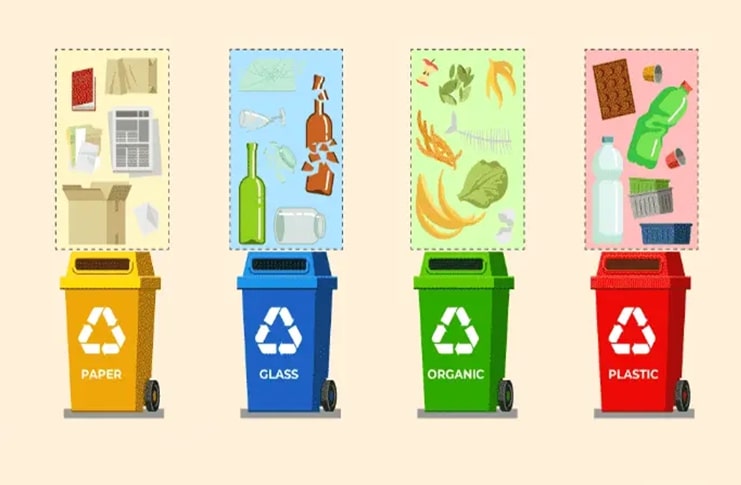Waste management is crucial for maintaining a healthy environment, conserving resources, and mitigating the impacts of waste on human health and the ecosystem. Waste management practices like recycling and composting help conserve natural resources, reduce the need for raw materials, and decrease greenhouse gas emissions.
Proper waste management can reduce methane emissions from landfills, which contribute to climate change. Waste management is essential for achieving sustainable development goals, as it helps reduce waste, conserve resources, and promote environmentally friendly practices.
How Corporates contribute to waste management in India?
Corporates play a significant role in solid waste management in India. This includes partnering with industries and local governments to establish material recovery facilities, educating communities on segregating organic, recyclable, and hazardous waste.
Businesses adopt Extended Producer Responsibility (EPR) to take back packaging waste and design for circularity, reducing waste generation and promoting sustainable production practices. Companies also engage in waste-to-energy projects, construction, operation, and maintenance of integrated waste management systems.
Corporates are involved in recycling initiatives, recovering valuable materials, and promoting waste minimization strategies. Corporates collaborate with government agencies to improve waste management infrastructure, reducing the financial burden on local governments and enhancing operational efficiency.
Companies are taking steps to educate the public about proper waste disposal practices, wrapping, and disposal of sanitary products, and promoting sustainable waste management practices.
Top initiatives by businesses for effective waste management in India
MoU signed to drive skill development in India’s Waste Management Sector
In a significant step towards revolutionizing waste management in India, the Rubber, Chemical, and Petrochemical Skill Development Council (RCPSDC) signed a Memorandum of Understanding (MOU) with the Paripatram in September 2024. The partnership focuses on enhancing skills and formalizing labor within India’s rapidly growing waste sector, a sector crucial for both environmental sustainability and economic growth.
This partnership will work to integrate informal workers into the formal economy, enhancing their livelihoods, while encouraging waste handling practices across the country. The initiative aligns with key national missions like Skill India, Clean India, and Made in India, demonstrating Paripatram’s dedication to promoting sustainable development and creating a skilled, certified workforce in the waste management sector.
Project Hilldaari by Nestlé India for waste management in the hills
Project Hilldaari supported by Nestlé India, and implemented by PLAN Foundation and technical partner, Recity India has been conceptualized to develop inclusive, contextualised, and resilient models for solid and plastic waste management at select tourist cities of India. The project is currently operational in Mussoorie, Mahabaleshwar, Ponda, Dalhousie, Munnar and Darjeeling in West Bengal.
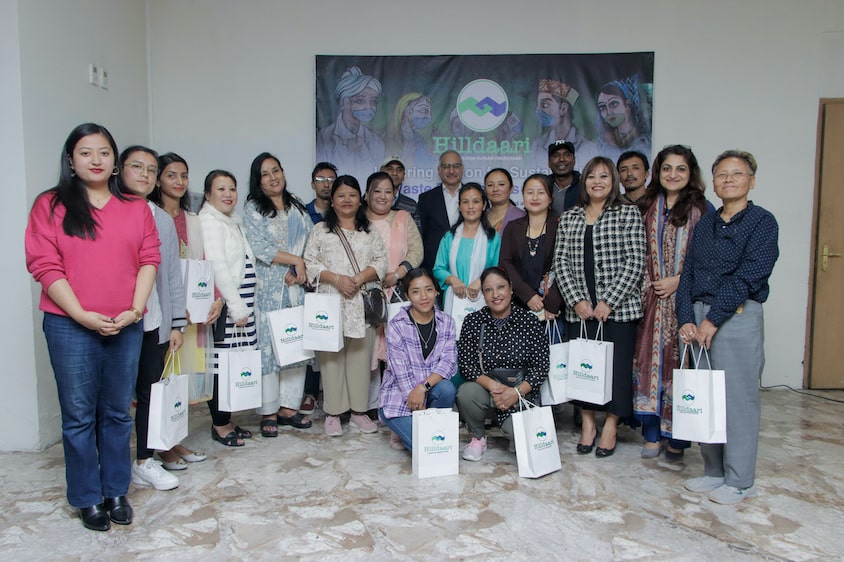
Project Hilldaari in its existing locations across India has diverted more than 27,000 MT of waste from landfill through source segregation. 80% of source segregation has been achieved across more than 20,000 residential and commercial waste collection points.
Hilldaari believes that every member of the society can contribute towards making a positive change. These partnerships invoke a sense of solidarity and collective spirit among citizens. The initiative is progressively working towards professionalizing waste workers towards segregation of waste at source through a multi-collaborative approach with municipal councils, citizens, contractors, waste workers and influencers. Through Project Hilldaari over 560 waste workers have trained to become a crucial part of behaviour change interventions. The project has also given them formal recognition with occupational ID, benefits such as health insurance, protective gear necessary for their work and other such benefits.
Lighthouse Initiative by Ambuja Cements in Gujarat
Ambuja Cements has contributed to community development by implementing a solid and liquid waste management initiative in Vadnagar village, Gujarat, through the Lighthouse Initiative. The project, a collaboration between the public and private sectors under the Ministry of Drinking Water and Sanitation, will roll out across 75 Gram Panchayats (GPs) in 15 states during its initial phase, with Vadnagar leading as the first village to effectively implement the LHI project.
With the support from Ambuja Cements, Vadnagar Gram Panchayat, located in Kodinar block of Gir Somnath district, has become a standout example in plastic waste management (PWM) under Phase II of the Swachh Bharat Mission Grameen (SBM-G).
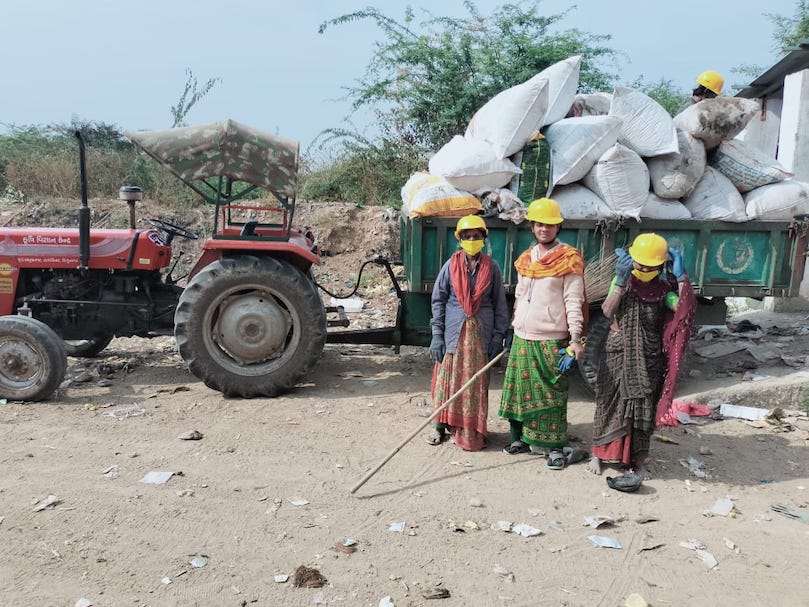
Ambuja Cements ensured effective waste management under LHI by supporting Vadnagar for house-to-house waste collection and segregation. Additional initiatives, including the creation of a rag-picker group and the establishment of necessary infrastructure, contributed to the successful management of plastic waste. Notably, 2500 kg of plastic waste has been collected and sent to Ambuja Cements for safe disposal.
The community received education on the significance of Solid and Liquid Waste Management (SLWM) and Plastic Waste Management (PWM) through meetings and awareness programs, leading to improved waste segregation practices.
PepsiCo Foundation’s Cooperative for Solid Waste Management in Assam
The PepsiCo Foundation, in partnership with Pyxera Global, launched the ‘Cooperative for Solid Waste Management’ (CSWM) in August 2024 in Guwahati, Assam. This initiative aims to create an enabling environment for waste workers in the region by addressing their challenges through strategic partnerships and innovative solutions, during the next 15 months.
Through this partnership, PepsiCo India and Pyxera Global aim to set the foundation for a transformative journey of waste management and make measurable progress in elevating the role of waste collectors in waste management ecosystem, drive economic growth and meaningful change in the region.
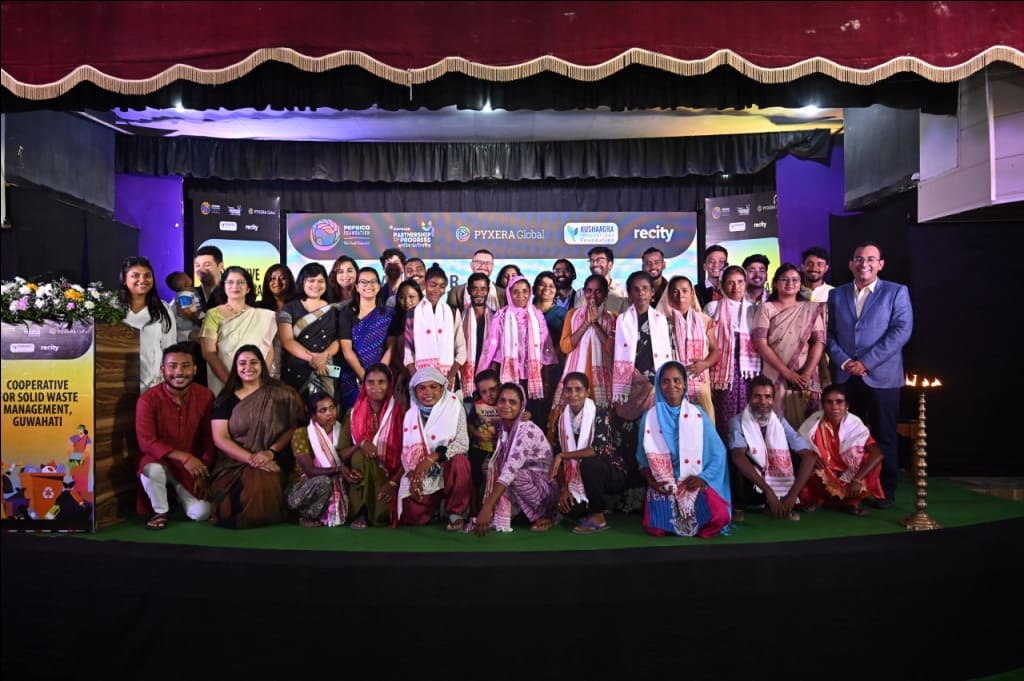
The project will bring together at least 100 waste collectors as active members of the CSWM to address their key requirements:
Potential Increase in Annual Income: Enable formal income structures by integrating waste collectors into the formal solid waste management system, eventually boosting their annual income.
Enhance Professional Capacity: Improve the professional capacity of waste collectors through professionalization workshops for skill development, capacity-building initiatives, and support for establishing necessary business linkages.
Promote Health and Well-being: Improve the health and well-being of waste collectors by conducting a minimum of four health camps focused on addressing health hazards specific to waste collectors.
As part of launching the CSWM, a baseline survey was conducted with ~1000 waste workers by Pyxera Global to lay the context. It shows that 1500+ waste pickers working informally/ semi formally are living in and around the Guwahati city; they play a critical role in extracting the quantum & quality of materials for recycling purposes. In the larger context of waste management, this ensures increased diversion of waste from landfill and aids the recycling of valuables for circularity. Women workers form more than half of the picker community surveyed which shows a potential to enable them through self-employment or entrepreneurial models.
The majority of the surveyed pickers were unaware of the government health schemes available, which is an aspirational need for them working through largely informal incomes.
CSR of Coca-Cola India for solid waste management in Madhya Pradesh
The Coca-Cola India and its Foundation, Anandana, and the Madhya Pradesh Tourism Board signed an MoU in March 2025 to launch Project Clean Destination in Bandhavgarh, aiming to promote solid waste management over the next three years.
The expansion of ‘Project Clean Destination’ in Bandhavgarh National Park builds on Coca-Cola India’s success at Panna National Park, where waste management was implemented across 30 surrounding villages. In partnership with Saahas, Coca-Cola India has engaged local communities, establishing Material Recovery Facilities (MRFs) and village-level storage centres to streamline waste management. The initiative also creates livelihood opportunities by training Swachh Mitras (Waste Workers) for waste collection.
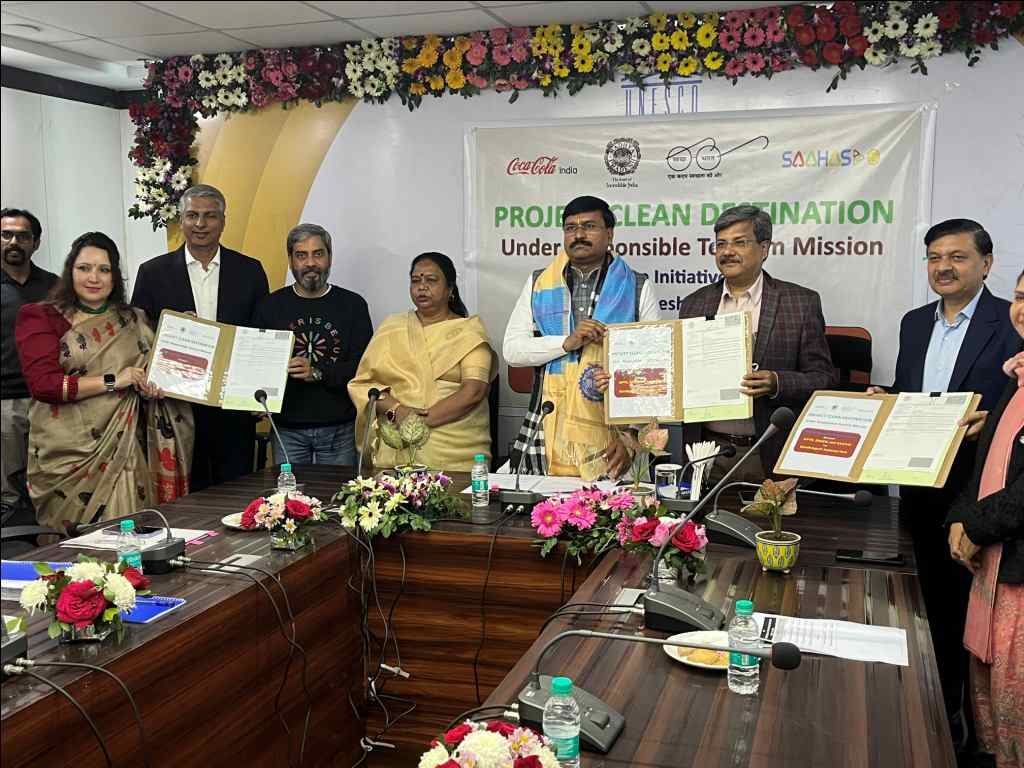
As part of Coca-Cola India’s flagship campaign, Maidaan Saaf, this initiative promotes source segregation, raises awareness about responsible waste practices, and fosters strong community participation for long-term impact.
The MoU, which aligns with the Government of India’s Responsible Tourism Mission and Swachh Bharat Mission, was executed in the presence of Sh. Dharmendra Bhav Singh Lodhi, Minister of State (Independent Charge) for Culture, Tourism, Religious Trust, and Endowments.
Speaking about the collaboration, the Minister stated, “The Madhya Pradesh Tourism Board is proud to strengthen its collaboration with Anandana – The Coca-Cola India Foundation through the expansion of Project Clean Destination. This initiative reflects our shared commitment to preserving the ecological heritage of iconic sites like Panna and Bandhavgarh National Parks. By addressing waste management challenges and fostering community participation, we together aim to set new benchmarks for sustainable tourism in the state, contributing to a cleaner and greener Madhya Pradesh.”
CSR for construction waste management in Gurugram
NatWest Group India teamed up with their CSR implementation partner, Saahas in February this year to launch Project बिनMalba. With Gurugram’s rapid urbanization exacerbating the Construction and Demolition (C&D) waste crisis, this initiative aims to introduce innovative and scalable waste management solutions, fostering a cleaner, healthier, and more sustainable city.
